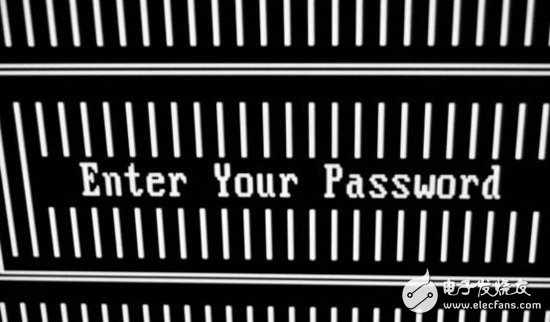Just a decade ago, the password security of users, including Hotmail accounts and AIM securities accounts, was not well protected. Recently, the personal data of almost every big company has exploded. The New York Times, Facebook, Gmail, and so on, have all been attacked by hackers. Although these companies have taken various measures to protect these large amounts of sensitive data, including credit cards, addresses, communication methods, and so on. However, since the invention of computer passwords for more than 50 years, security personnel and developers have been trying to completely solve the problem of password security, and to curb this somewhat uncontrollable momentum. The first generation of computer cryptosystems was created in 1961 by the Massachusetts Institute of Technology through the Compatible Time-Sharing System (CTSS), which became the basis of all of the computer cryptosystems we use today. The CTSS system is designed to build an independent control platform from a computer with the same processor. In this way, each developer can control the security of the entire system. "The key issue is that although we have multiple terminals and are used by multiple people, everyone has their own private files," said CTSS project leader Fernando Corbato in an interview with Wired magazine. "Locking each user's password separately seems to be a very simple solution." These first-generation passwords were very simple and easy to keep, because complex hacker cyber attacks and password crackers didn't exist at the time, but even though this system was very easy to get rid of. In 1962, CTSS researcher Dr. Allan Scherr printed all the passwords stored on the computer, so he had more usage rights than he had only been allocated four hours a week. “There is an offline file print request by submitting a hard-punched card with an account number and file name,†Scherr wrote in a document on CTSS records. "On Friday night, I submitted an application to print a password file, and it was not printed until Saturday morning, and it was placed outside. Anyone can continue to steal these password information if they wish." As operating systems become more complex and more widely used, the importance of password security has become higher and higher. The father of the famous hacker Robert Tappan Morris and former US National Security Agency scientist Cryptographer Robert Morris developed a UNIX operating system with a single encryption function, named "hashing". His son, Robert Tappan Morris, later became the first hacker to invent the first notorious worm to spread the Internet. The "hashing" system written by the old Morris does not store the actual password in the computer system, so the information is not easily attacked by hackers. The old Morris encryption strategy seems to have realized the development concept proposed by Cambridge University in the 1960s. Modern UNIX-based systems, such as Linux, used a more secure hashing algorithm in the early days. Today, the "salTIng" password is added with unique characters before passing the password function and can increase the ability to defend against attacks. However, although hundreds of commonly used hash passwords are still encrypted, they can still be guessed. In the past few years, hackers have attacked servers including Linkedln and Gawker, and it has been easier to crack encrypted passwords. "In the process of network development, we all use the Internet, and password work is also very good." Wired magazine editor Mat Honan wrote in 2012 as a victim of hacking. "This is largely because they don't have much data to protect. Because there isn't much personal information on the cloud server. With the rise of cloud technology, more and more hackers are turning their attention to big companies. System server." Now, even on our favorite TV show website, we can see our personal information, including credit card numbers and all password-protected materials. The negligence of big companies has repeatedly caused tragedies. First of all, even now, not all websites encrypt password data, and some programs still use "plain text" to store secrets. And that means that their current system has not improved compared to decades ago. If a hacker invades a server on a website, thousands of passwords and all personal data that needs to be protected are exposed to hackers in an instant. Hackers usually guess passwords based on their generality and habits. According to a survey of several large-scale password breaches in 2013, 76% of network intrusions are through user accounts. Under normal circumstances, once a hacker gains an account password for a person, the other account password of the user is also very dangerous. Because most people use the same password or some very simple passwords (some common words will inevitably be treated as passwords). And this way of calling "DicTIonary attacks" can easily crack these simple passwords by periodically trying high-frequency vocabulary in the dictionary. As a result, most websites require users to use more complex combinations and require authentication after the password. For example, users preferably use uppercase and lowercase letters, numbers, and special symbols to form passwords, and users are advised to use different passwords for different websites. However, at present, Internet users access an average of 25 websites that involve password login every day, and remembering these different passwords of at least 14 bits is a huge mental burden for ordinary users. Grind&Brew Coffee Maker,Coffee machine with grinder FOSHAN FORTUNE ELECTRICAL APPLIANCE CO.,LTD , https://www.coffelady.com
